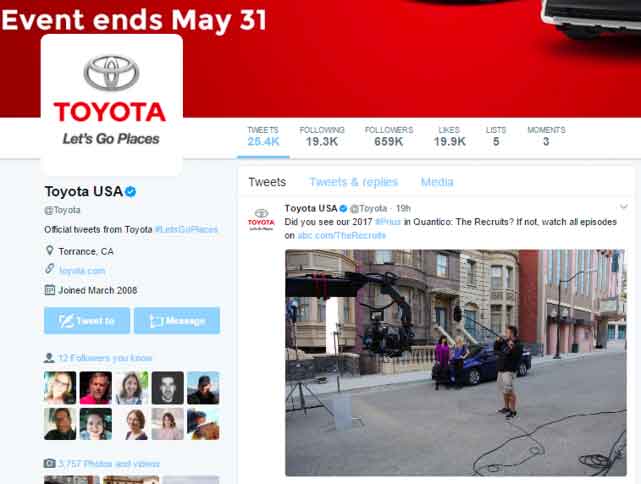Building Web Authority to Improve Online Reputation

Websites that are “authoritative” in their space rank much better. Google pays more attention to authoritative sites and pages. But how does a website become “authoritative”? Leverage different kinds of media to accomplish your goals.
Let’s face it, you’re far more likely to buy health food from a renowned dietitian than some hack off the street. Likewise, when your customers think of your business, do they also see you as an authority?
Is your brand an authority in search results?
You can find the answer by Googling your brand name. Are the results consistent, powerful, and diverse? Is there a good mix of articles, blogs, reviews, and multimedia – or is your brand faltering farther down the page? If you aren’t coming up number one in search results for your brand name then you might have an authority problem.
Is your product or service an authority?
Now, perform a search for your product or service, but do so generically, without your brand name in the search phrase. For example, instead of “Kleenex Tissues” search “facial tissues”. Does your brand show up now? If it does, you’re considered an authority to search engines.
The simple fact is, if your brand’s search results position you as an expert, you’ll make more money. But experts don’t become that way overnight. When it comes to your online reputation, you have to use a combination of earned, owned, and paid online media to rise in the ranks.
The difference: authority vs. reputation
Not only your website should be an “authority” but your other owned, earned, and paid properties as well. Remember that authority sites rank better – so to control search results you’ll want your brand to occupy all the search slots if possible. You do this through a combination of different kinds of media.
Earned media is great for authority
The media attention that you earn through your expertise is called “earned media.” If you’re invited to speak about your business on The Today Show, that’s an excellent example of earned media exposure. Chances are when potential customers search for your business on Google, your TV interview is going to pop up on the first page of results. Reviews are a type of earned media too.
Earned media is the pinnacle of success – proof that you know what you’re talking about. It’s also proof to search engines that your business is worthy of appearing to a larger number of people.
Try the low-hanging fruit publications first
Earned media doesn’t have to be as extravagant as appearing on TV. It’s often easier to connect with a journalist who writes a profile on your business for an industry publication or a local newspaper. You may even write an article or book, yourself, and pitch it to a reputable publication. What is a reputable publication? Often one that has very high visibility in related search results.
What does earned media look like?
What does earned media look like in search results when a customer searches for your brand? If it lives on a website with high domain authority, it probably shows up on the first page. Here’s an example of earned media that appears on the search engine results page (SERP) of the branded search for Toyota:

These news articles appear on third-party sites, meaning Toyota didn’t pay for them or publish them on Toyota.com. Notice how each article is with a reputable site – The Detroit News, Green Car Reports, and ABC News. The higher quality of the outlet, the better your earned media will rank.
Owned media
Let’s face it, we can’t all be renowned gurus with headlining interviews. If you’re a startup or don’t have the expertise to command much media attention yet, no worries! Plenty of businesses have enhanced their branded search results by creating original content on their own websites and social media pages. This is called “owned” media, and it’s the easiest type to control.
Keeping with the Toyota example, they own the media they post on their Twitter page:

If Toyota was to host a blog on its website, this would be another example of owned media.
Paid media
Paid media can look a lot like owned or earned media when it’s done well. This content is often labeled with the word “sponsored” or “advertisement.” In search results on Google and Bing, paid content appears at the very top with the label “Ad,” as seen below:

Other times, paid content blends in. This is called native advertising. A hypothetical example would be Toyota paying a media company to publish an article they wrote about cars. The main difference between paid and earned media is which way the money flows. With paid media, a brand contacts a media company or publication and offers to pay them for a featured spot. With earned media, the media outlet often pays the expert for the story.
Links and mentions
You’ll want earned and paid media to link not only to your main website (normal SEO), but to other positive content you want to have high visibility online for (online reputation management). Your owned properties like Facebook and your charity site can also link to other branded content as well. Want to better understand how link-building outreach works? Click here for an overview.
Mentions and effective frequency
Sites don’t always have to link to you. Mentioning your brand name online also helps to some extent. It’s a measure of popularity. There is a term called “effective frequency”. It’s the number of times a person must see your brand name before they buy. It’s a controversial subject though. Apart from advertising, effective frequency may be a factor in search ranking.
Wrapping up
- Be the content authority in your space.
- Have the best, most up-to-date information compared to your peers
- Get featured by other websites that are also an authority in your space.
Do that, and over time you’ll attract hundreds or thousands of Twitter followers, Facebook shares, and probably most important of all, inbound links to your site. Inbound links from topically similar, trusted, and authoritative sites are the number one ranking factor for high search visibility.
We wish you rockin’ search results and a pristine online brand reputation.
Search Results FAQs
How do I rank higher in search results?
Google ranks authoritative sites and pages higher in search results. If you’re considered an authority to search engines, your web pages will outrank the competition.
How do you build authority for your brand?
Build authority for your brand by using a combination of earned, owned, and paid online media. Earned media is media attention that you earn through your expertise. Owned media are the websites and social media pages you control, like your blog. Paid media can look a lot like owned or earned media when it’s done well. Think sponsored posts and paid advertising.
How does authority impact reputation?
Your website and all media properties should be an authority in your industry. This will help improve your reputation by portraying you as an expert in your niche, which will also build trust.
About the author
Kent Campbell is the chief strategist for Reputation X, an award-winning online reputation management agency. He has over 15 years of experience with SEO, Wikipedia editing, review management, and online reputation strategy. Kent has helped celebrities, leaders, executives, and marketing professionals improve the way they are seen online. Kent writes about reputation, SEO, Wikipedia, and PR-related topics, and is an expert witness for reputation-related legal matters.
